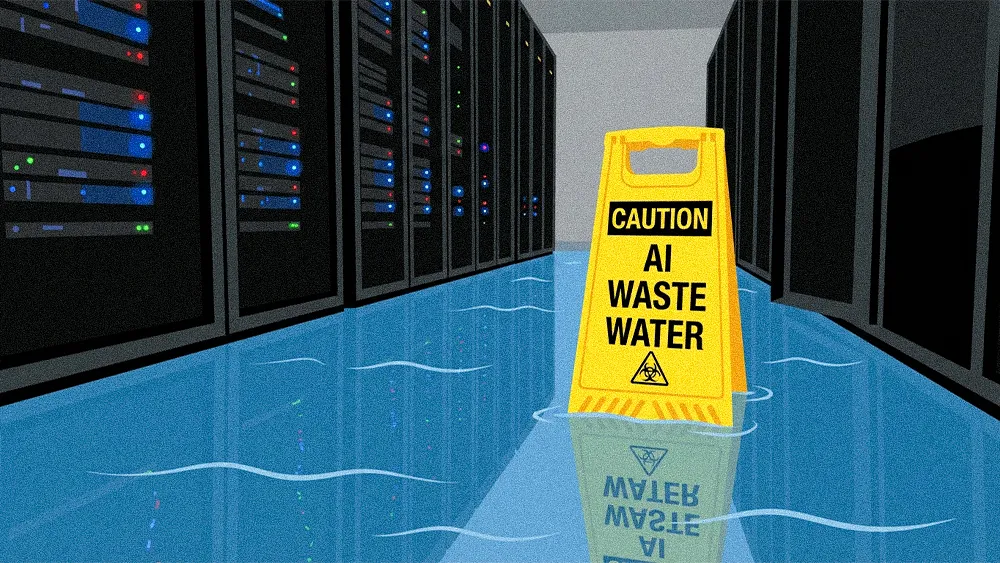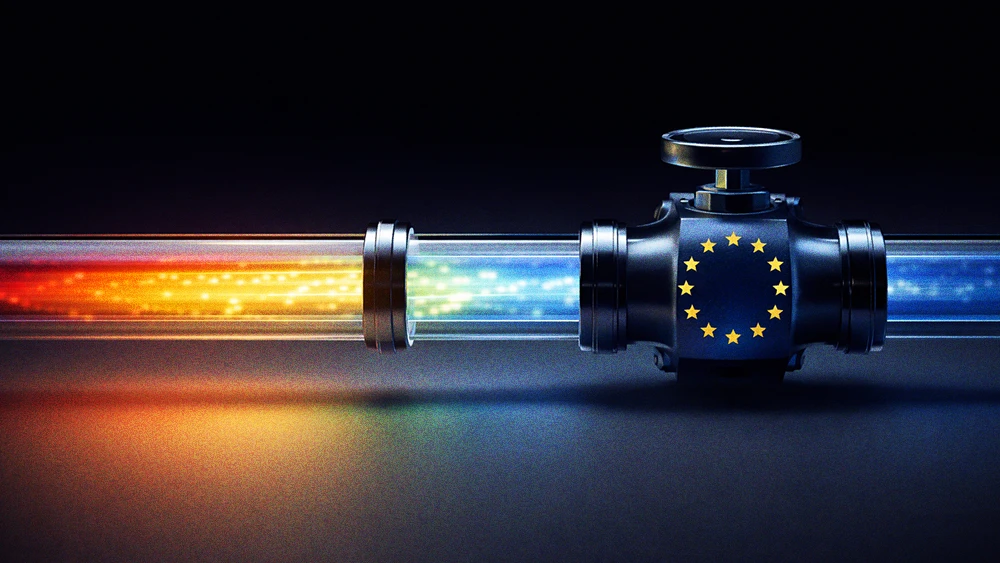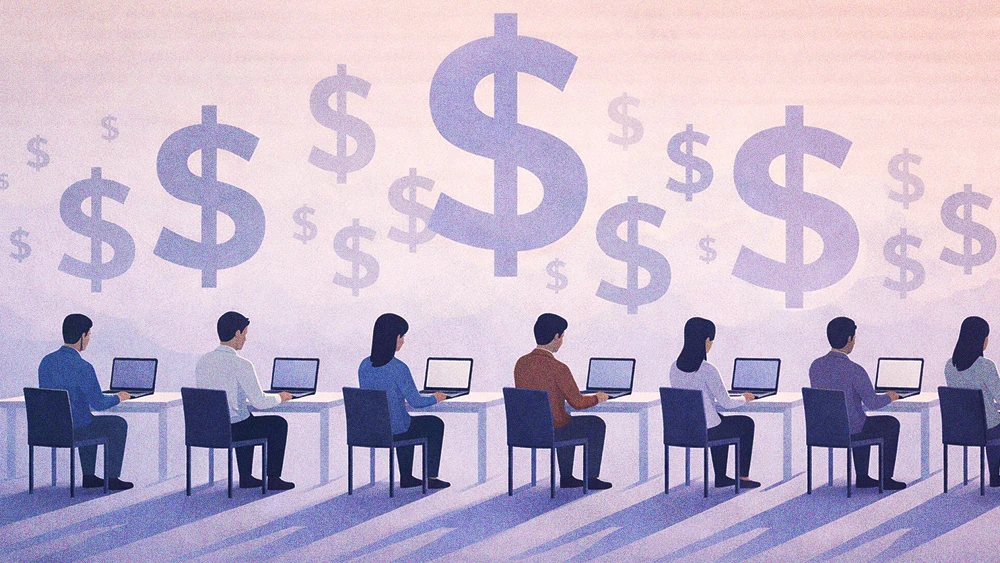
- VC Mary Meeker's new report on AI trends lays out the unprecedented speed and scope of AI adoption, development, investment, and more.
- Emergence Capital's Jake Saper discusses how AI has created massive growth for some companies within the firm's own portfolio.
- Despite historic wins, VCs also confront market instability and the deep, sometimes existential, questions AI introduces.
Legendary VC and analyst Mary Meeker's new report on internet and enterprise trends takes on AI, and the change it documents is staggering. A key example: AI-native companies are hitting $100 million in revenue in their first couple of years, as opposed to the five-to-seven year average of traditional SaaS. This is creating an entirely new environment and urgency for VC investment.
Fueling the fire is intense market demand. As the report lays out, ChatGPT went from 0 to 800 million users in 17 months, while it took Facebook 4.5 years and Netflix 10 years to hit 100 million users. And time per session is growing at a rate (47% in 21 months) that goes past adoption to what SaaStr's Jason Lemkin calls "addiction-level engagement".
"We're living in what I believe is the scariest and most exciting time—not just as a VC, but frankly, as a human being," says Jake Saper, General Partner at Emergence Capital. Saper brings over a decade of experience spearheading investments in businesses like Unify, Ironclad, and Mechanical Orchard.
- The necessity to reinvent: Saper's focus on AI's impact on work dates back to 2016 when he co-authored the firm's thesis on AI Coaching Networks, well before the current generative AI boom. "Tech booms have come before, but this is different. This is genuine transformation," he says. But facing it head-on is non-optional. As Saper writes on LinkedIn, "to compete in this new era, pre-2023 founders have to reinvent. Not iterate—reinvent…What’s not okay is pretending everything’s fine and continuing with business as usual. In this era, that’s a slow-motion failure."
It still remains to be seen whether AI-native newcomers can irrevocably widen their head start, or if established companies will ultimately pull ahead with their own bundled AI features and strong existing marketshare. Even AI startups with sky-high valuations and fast-growing ARR are reliant on established models and are yet to be profitable. But there's no question that more investment is critical to sussing out SaaS's next phase.
- Community and rapid pivots: Emergence portfolio company Bolt (formerly Stackblitz) used the power of agile AI adaptation coupled with other growth levers such as community to renew its mission. Despite building a strong developer following around its web-based IDE, Bolt struggled with monetization. "They were about to shut the business down," Saper recounts. A swift pivot, however, changed everything. Integrating their performant web-hosting technology with Claude's AI coding capabilities meant that "within the course of a couple of weeks, they built something that really worked and it absolutely took off. They went from $0 to $20 million ARR in two months." While this established base provided an initial lift, much of the explosive growth was driven by viral enthusiasm for the new AI-powered tool.
- The data deluge and fine-tuning: "'The bigger delta is going to be in the fine-tuning when addressing AI data requirements," Saper says. While foundational models still demand enormous data, he suggests the trend for customization points to leveraging smaller, more valuable datasets. "It seems like the direction the world is headed is that those models, particularly the reasoning-based models, can be fine-tuned with less data and still be very effective." This shifts the focus from sheer quantity to quality. "What is the data you have that is truly proprietary? Even if it's a small amount of data, you can now leverage that potentially with a more defensible business model than you could before."
It's an equally "scary and exciting time to be a VC," Saper reiterates. Companies are scaling at rates previously unimaginable. "When I was leading Zoom's first institutional investment in 2014, that company had gone from $0 to $2 million ARR in around two years. That was amazing," he recalls. "Now we see companies go $0 to $2 million in a year, and it's not even that remarkable."

"What is the data you have that is truly proprietary? Even if it's a small amount of data, you can now leverage that potentially with a more defensible business model than you could before."
In fact, according to the Meeker report, the growth of AI-native companies is unlike anything we've ever seen—AI code editor Cursor, for example, went from $0 to $300 million ARR in just 25 months. Saper says the excitement stems from AI's incredible capabilities and strong market pull, as "most people's bosses are saying 'go buy AI or figure this out.'" The scary part? "The ground is still so unstable. The models themselves are growing so quickly." This instability raises pressing questions about the longevity of current solutions and even the future structure of entire job functions.
- The human element in investing: Despite AI's growing capabilities, Saper believes certain human elements in venture capital will remain difficult, if not impossible to automate, especially in early-stage investing. "I think the two parts that will likely remain are the ultimate judgment in early-stage investing. There's just so much gut." The second, he says, is "the customer service part of this job." For Saper, this means more than just leveraging networks and pattern recognition; it's about providing crucial emotional support. "A lot of my job as an investor is to be an emotional calibrant for my founders... My job, in many ways, is to be like a shock absorber for them. And I think that's a very human thing."
- The future is agentic, but not instantaneous: Looking ahead, Saper sees AI agents as "really the next big era in AI," which could simplify adoption by requiring less human involvement. That view is backed by new research from Cisco, which predicts that agentic AI will handle over 50% of tech vendor customer service interactions within a year. Saper doesn't foresee an instantaneous, sci-fi-like transformation, but acknowledges change could happen quickly.
Saper maintains a high degree of optimism, particularly regarding AI's potential for societal good. "There's a reasonable chance that cancer gets cured in our lifetimes, and in large part because these models can do amazing things. I think we're going to see an acceleration in advances in healthcare, and obviously that's super exciting."
.svg)





.webp)